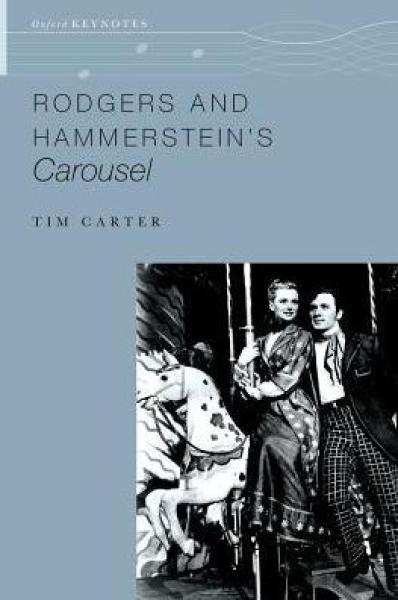Description
(director), and Agnes de Mille (choreographer). But with Oklahoma! still running to sell-out houses, they needed to do something quite different.
Based on a play, Liliom (1909), by the Hungarian playwright Ferenc Moln�r, Carousel took Broadway musical theater in far darker directions because of its subject matter-the protagonist, Billy Bigelow, is wholly an anti-hero-and also given its extensive music that some claimed came close to opera.
The action is shifted from a gritty working-class suburb of Budapest to the New England coast (Maine), but the themes remain the same as two social misfits try to survive harsh economic times. Billy Bigelow is unemployed, prone to domestic violence, and dies in the course of committing a robbery;
Julie Jordan sticks by him through thick and thin; and the show seeks some manner of redemption for both of them as Billy is given a day back on earth to do some good for his wife and their daughter. Troubling though these matters are nowadays, they fit squarely in the context of a country moving
through the end of World War II to an uncertain future.
Not for nothing had composers such as Giacomo Puccini and Kurt Weill already tried to persuade Moln�r to release his play. It also led Rodgers and Hammerstein to new heights: songs such as "If I Loved You," Billy's "Soliloquy," and "You'll Never Walk Alone" transformed the American musical. In this
book, we discover how and why they came about, and exactly what Carousel was trying to achieve.
"Following the success of their first collaboration, Oklahoma! (1943), composer Richard Rodgers and librettist Oscar Hammerstein II worked again with producers Theresa Helburn and Lawrence Langner, director Rouben Mamoulian, and choreographer Agnes de Mille to put on a very different kind of show. Based on the play Liliom (1909) by Hungarian playwright Ferenc Molnaaar, Carousel (1945) took Broadway musical theater in a far darker direction than it had gone before with its gritty plot, anti-hero protagonist, and extensive music that critics claimed came close to opera. Carousel transplants the themes of Molnaaa's play into a new setting on the New England coast, telling the story of two social misfits struggling to survive harsh economic times: Julie Jordan defies the conventions of small-town America in her choice of a husband, and Billy Bigelow--unemployed and prone to domestic violence--dies in the course of committing a robbery. Author Tim Carter examines how this troubling subject matter fits into the context of a country moving through the end of World War II to an uncertain future, and how Carousel transformed the American musical on stage and screen."--Back cover.
"Through his careful analysis and compelling reading of new sources, Carter makes a compelling case for scholars and performers to reconsider a work that might otherwise be dismissed, and provides a fascinating historical narrative in the process." -- Arianne Johnson Quinn, Society for American
Music Bulletin
"This book is a lively and absolutely fascinating history of Carousel with equally insightful analyses of the show. Tim Carter's meticulous archival work, his strong and persuasive argument, and his compelling interpretation of Carousel make this book indispensable for R & H and musical theatre
aficionados. I could not put this book down once I started it!" - Stacy Wolf, Professor of Theater, Princeton University, and author of Changed for Good: A Feminist History of the Broadway Musical
Product Details
- Oxford University Press, Brand
- Oct 25, 2017 Pub Date:
- 0190693444 ISBN-10:
- 9780190693442 ISBN-13:
- 160 Pages
- 8.1 in * 5.5 in * 0.6 in Dimensions:
- 0 lb Weight:




